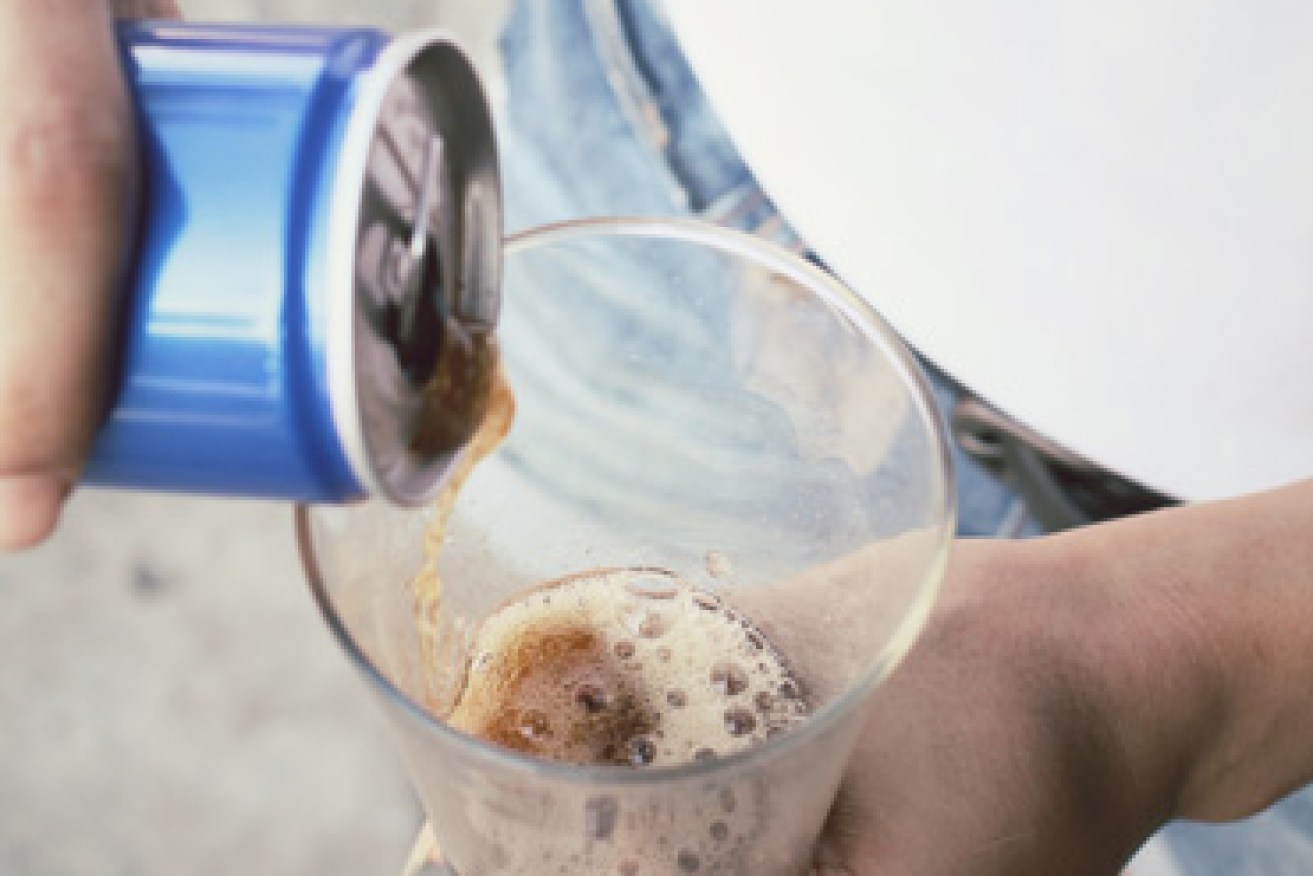How to buy the healthiest, guilt-free soft drinks

Shutterstock
Consumers have scored a win against a giant soft drink company, albeit for the wrong reasons.
Last week, Pepsi bowed to consumer pressure by pledging to replace the sweetener aspartame with a different kind of fake sugar in its American diet colas by August.
“Decades of studies have shown that aspartame is safe, but the reality is that consumer demand in the US has been evolving,” said Pepsi spokesman Seth Kaufman in a statement.
• Women being charged extra for ‘so many things’
• Harmful ingredient hidden as ‘vegetables’ on labels
• Which Aussie telco has the best data plan?

Sodas can contain an acid used to remove rust. Photo: Shutterstock
Consumers were right to be suspicious of the artificially sweetened beverage, although their concerns were misplaced, health experts told The New Daily.
Contrary to popular opinion, there is no credible evidence diet soft drinks cause cancer, but they should still be avoided, said leading nutrition expert Dr Rosemary Stanton.
This is because they preserve our sweet tooth, while eroding our actual teeth.
“I won’t be recommending any kind of Pepsi because they are highly acidic, the cola ones particularly, and so they are very damaging to tooth enamel, whatever the sort of sweetener they have,” Dr Stanton said.
“They also maintain a liking for sweet drinks, and that liking for sweet drinks is something that, really, people should be getting rid of.”
Many people wrongly assume diet soft drinks are safer for teeth, when in fact these beverages can be “even more acidic”, said Australian Dental Association oral health committee chairman Dr Peter Alldritt.
This is because they contain acids (such as phosphoric acid commonly used to remove rust) that can dissolve the protective enamel, leading to cavities and pain.
“The acidity is still a huge problem,” Dr Alldritt said. “In fact, diet soft drinks are often even more acidic than the ‘full strength’ versions.”
Are artificial sweeteners safe?
Pepsi has said it will replace aspartame with sucralose mixed with acesulfame potassium.
For now, all three of the fake sugars are believed to be safe.
There is some evidence that artificial sweeteners prime the gut hormones to expect sugar, which can trigger diabetes in the long term, but this is yet to be definitively proven.
Another potential risk is that sugar-free drinks trick us into splurging on other unhealthy foods, but for now this is just a theory.
“Certainly [artificial sweeteners] are undesirable if you have too much of them, but you’d really have to drink an awful lot, by which time you’d have no teeth and a few other problems,” Dr Stanton said.
The healthiest soft drinks
“If they want something fizzy, then carbonated water is the way to go,” Dr Stanton said.
 | Pepsi’s Schweppes Natural Mineral Water |
 | Coca Cola’s Mount Franklin Lightly Sparkling |
Add some flavour
Soda water can be bland if your taste buds are used to sugar or sweetener.
To add some healthy pizzaz, stir in herbs and freshly cut or frozen fruit.
 | Ginger and lemon |
 | Pineapple and mint |
 | Raspberry and lime |
 | Strawberry and basil |
 | Watermelon and rosemary |
The runners-up
These sparking waters are unhealthy because they contain sugars and acids (as well as artificial sweeteners), but are superior to diet and full-sugar colas.
How to protect your teeth
• Drink soft drink in moderation, or not at all.
• Use a straw so your teeth are less exposed.
• Rinse out your mouth afterwards with water to wash away the acid.
• Brush and floss your teeth twice a day.
• Wait at least an hour after drinking soft drink before brushing your teeth, otherwise you can attack the already weakened enamel.
• Never drink diet soft drink before you go to bed.











